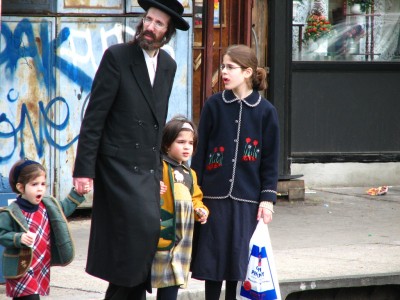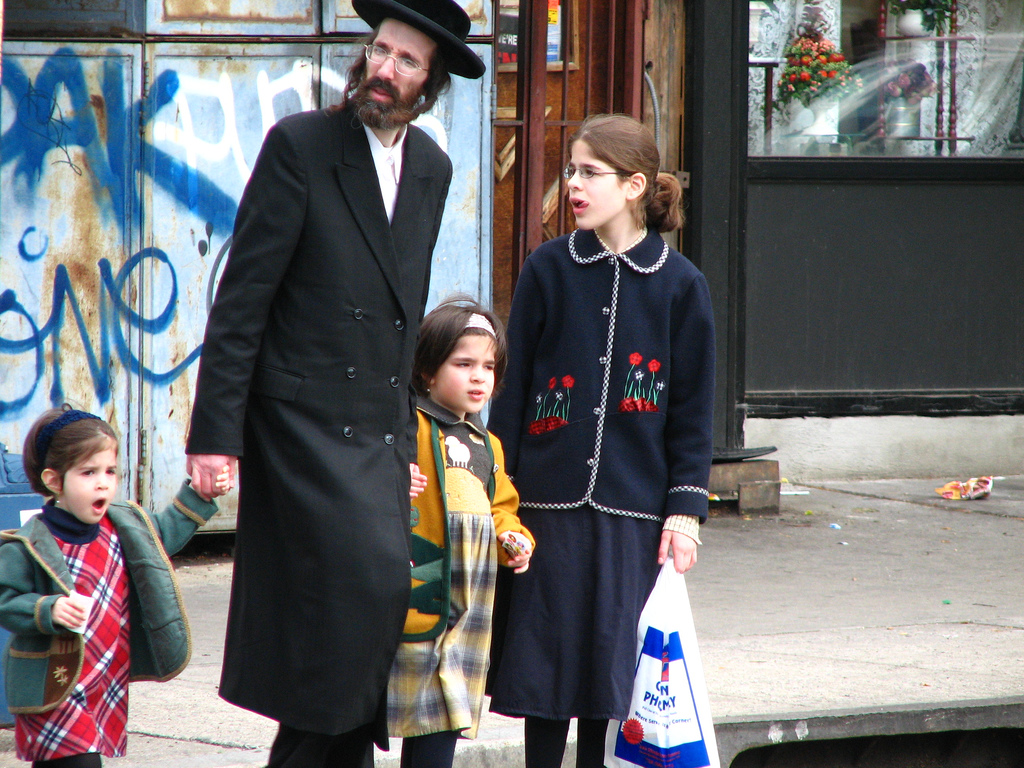
When news broke back in September of the systematic and egregious lack of regulation of secular studies curricula in Hasidic and Haredi schools, there was little outcry from the rest of the Jewish community over the fact that a large segment of our population — already growing up cut off from the rest of the world — is being denied their right to a basic fundamental education. There has been considerable call for education reform in New York City politics as well as protest within the Orthodox community, but there’s been little conversation outside of the confines of Orthodoxy.
On the one hand, this formerly Orthodox, now-progressive Jew found this odd. I’ve had many a conversation wherein someone who has never had considerable exposure to Orthodox Judaism and culture explain to me the exact ways in which Orthodoxy is oppressive — to women and LGBTQ people — and insular. So part of me was waiting for the inevitable backlash against these self-isolating enclaves in different parts of New York from progressive Jews. I’ve had the reasons for Orthodoxy’s supposed moral inferiority “Ortho-splained” to me many times, most often by those who have had no significant experience living in the Orthodox world.
But that backlash never came. At first, I breathed a sigh of relief that my non-Orthodox colleagues had not jumped on the self-righteous opportunity to prove how different they are from those who choose to cordon themselves off from knowledge and progress.
At the same time, we should be asking: What is the role that progressive and non-Orthodox Jews should play when something like this happens — when we realize that our members of our community are in crisis? It’s very easy to ignore them — they often live separate from us, and our windows into their world often come through the lens of ex-Orthodox memoirs, many of which serve to fuel our preconceived notions of these communities.
Indeed, the narratives that have been constructed of these communities tend to fluctuate between exalting their rejection of the secular world and concerted effort to shut themselves off from the rest of the world, and condemning them for doing exactly that. Both narratives are dangerous; both are equally unhelpful for non-Orthodox Jews trying to understand life in Haredi and Hasidic communities. Both remove those of us outside those communities from the ability to make any sort of critique: either Orthodox communities are beautiful for their insularity, or they need no nuanced critique. Neither, however, leads to a full understanding of Orthodox life.
Many of us in the progressive Jewish world simultaneously construct ourselves as both inferior and superior to those on the religious right. Both of the narratives we construct about Orthodox communities seek to absolve us of any sort of responsibility to other Jews, and allows those of us not affiliated with Orthodoxy to take the moral high ground, even if the idea that because we are not Orthodox we are morally superior is utterly ludicrous.
These narratives not only absolve us from the responsibility we bear to other Jews, but also allow us to construct a narrative of ourselves as inherently superior. Implicitly, we insinuate that issues of rape culture and sexual assault happen only in isolated pockets, and could never happen in our circles.
But they do, and we should be equally as outraged at the systemic negligence of children’s wellbeing in the Orthodox community. At the end of the day, we bear responsibility to all of our fellow Jews and to their children, even if we don’t always want to admit it.
At the same time, we should be equally careful not to typecast all of Orthodoxy as morally or ethically inferior through “Ortho-splaining.” There is much that is beautiful about the Orthodox world — as someone who was raised in and is still very much a part of the Orthodox world, I can attest to that. But it is not above critique, the same way none of our communities are above critique. The responsibility that we have to each other, at the end of the day, is to hold both of these often competing understandings together in our effort to be both outraged and empathetic.
Amram Altzman is a student at List College.

